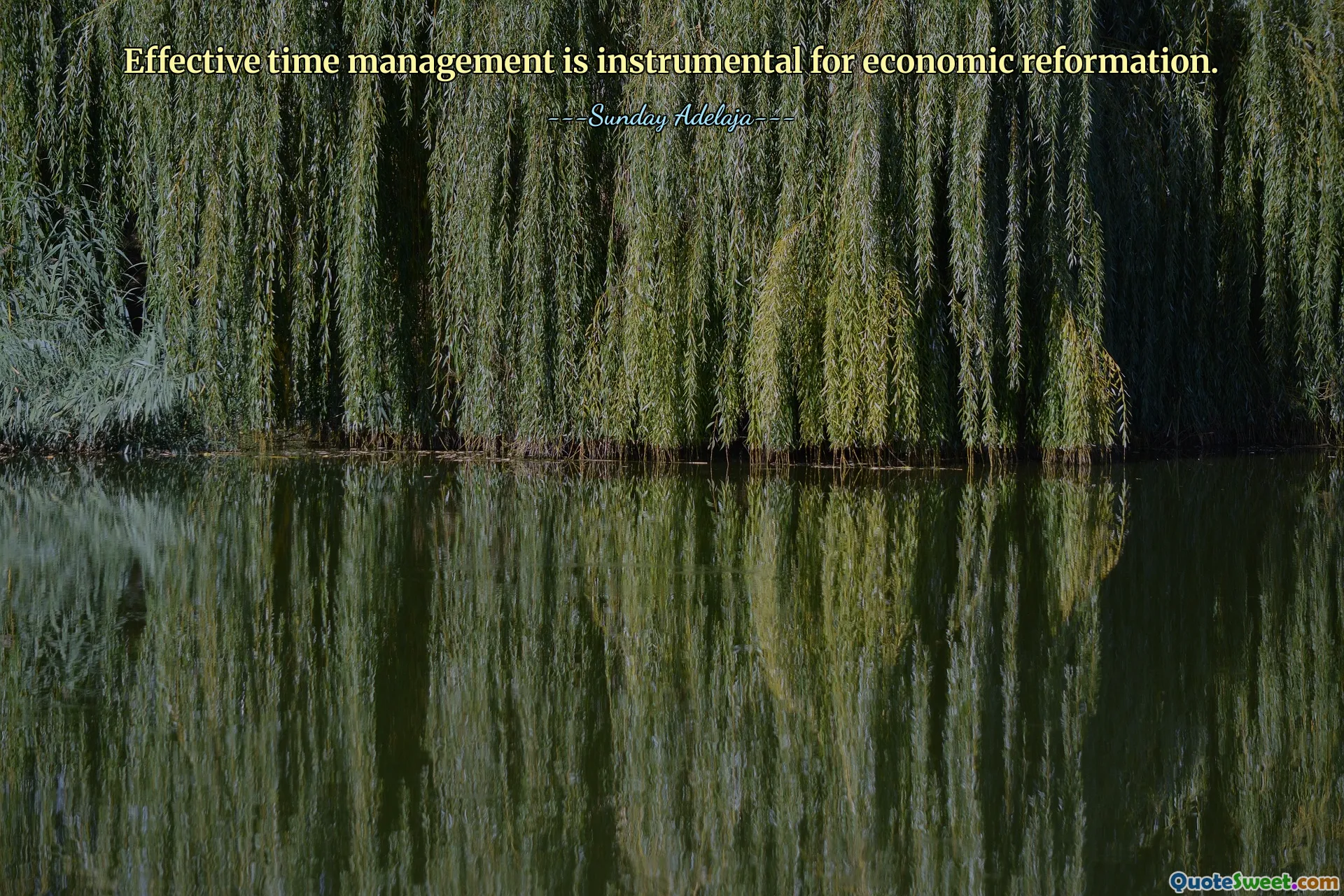
Effective time management is instrumental for economic reformation.
Time management is a fundamental pillar that underpins the progress of any nation's economy. When individuals and organizations prioritize their tasks and allocate their time efficiently, it leads to increased productivity and innovation. This, in turn, fosters a more competitive and resilient economy. Proper time management ensures that valuable resources, including human capital, are utilized optimally, reducing wastage and fostering a culture of discipline and accountability. For a country undergoing economic reformation, the strategic use of time can accelerate reforms, bridge gaps in infrastructure, and streamline policy implementations. Conversely, poor time management can hinder progress, cause delays, and create opportunities for corruption or inefficiencies to take root. At an individual level, entrepreneurs and workers who master their schedules contribute more effectively to economic growth. Governments that implement timely reforms and policy changes can catalyze economic transitions more smoothly. The essence of this quote underscores that effective management of time isn't just a matter of personal productivity but a crucial component of broader economic transformation. Leadership at all levels must recognize that fostering a culture of punctuality and strategic planning can lead to innovative solutions and sustained development, ultimately benefitting society as a whole.







